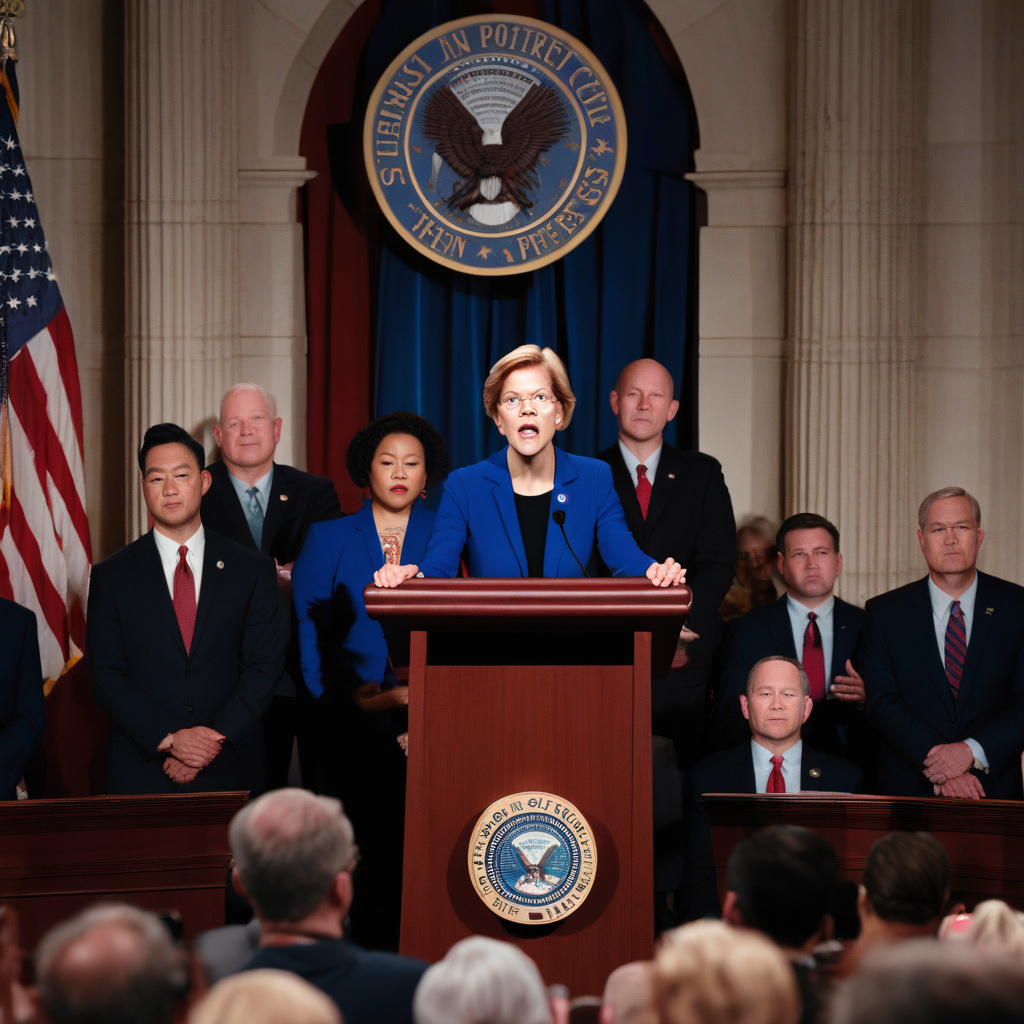Senator Warren Urges Stricter AI Chip Controls on China
As the global race for technological supremacy continues to intensify, lawmakers in the United States are advocating for stricter controls on artificial intelligence (AI) chips to counter China’s rapid technological advances. Senator Elizabeth Warren has been at the forefront of this push, highlighting the risks posed by Chinese tech giants such as Huawei and Semiconductor Manufacturing International Corporation (SMIC).
The call for tighter regulations on AI chips is rooted in concerns about China’s growing influence in the tech industry, particularly in the development of advanced AI capabilities. With access to cutting-edge AI chips, Chinese companies could potentially gain a competitive edge in key sectors such as cybersecurity, autonomous vehicles, and facial recognition technology.
One of the primary reasons behind the push for stricter controls is the perceived threat to national security. Lawmakers fear that allowing Chinese companies unrestricted access to AI chips could compromise critical infrastructure and sensitive data, posing a significant risk to the country’s security interests.
In recent years, Huawei has come under intense scrutiny over allegations of espionage and security breaches. The company’s close ties to the Chinese government have raised concerns among U.S. officials, leading to a ban on Huawei’s participation in the development of 5G networks in the United States and other countries.
Similarly, SMIC, China’s largest semiconductor foundry, has been accused of violating U.S. export controls and engaging in activities that could potentially aid China’s military ambitions. By imposing stricter controls on AI chips, lawmakers hope to limit China’s access to advanced technology that could be used for military purposes or other nefarious activities.
While the push for tighter regulations is aimed at countering China’s technological advances, it also raises questions about the broader implications for the global tech industry. Critics argue that overly restrictive measures could stifle innovation and hinder collaboration between countries, ultimately slowing down progress in the development of AI technologies.
Proponents of stricter controls, however, argue that safeguarding national security interests should take precedence over concerns about stifling innovation. By imposing limitations on the export of AI chips to China, the United States and its allies can mitigate the risks associated with China’s aggressive pursuit of technological dominance.
In response to the growing calls for action, the U.S. government has taken steps to address the issue of AI chip controls. In January 2021, the Department of Commerce added SMIC to its Entity List, effectively restricting the company’s access to key semiconductor technologies. This move was seen as a significant escalation in the ongoing tech war between the United States and China.
As the debate over AI chip controls continues to unfold, it is clear that the issue is far from being resolved. The tension between safeguarding national security interests and promoting technological innovation will likely shape the future trajectory of the global tech industry, with implications for companies, consumers, and governments around the world.
#AI #China #SenatorWarren #TechRegulations #NationalSecurity
